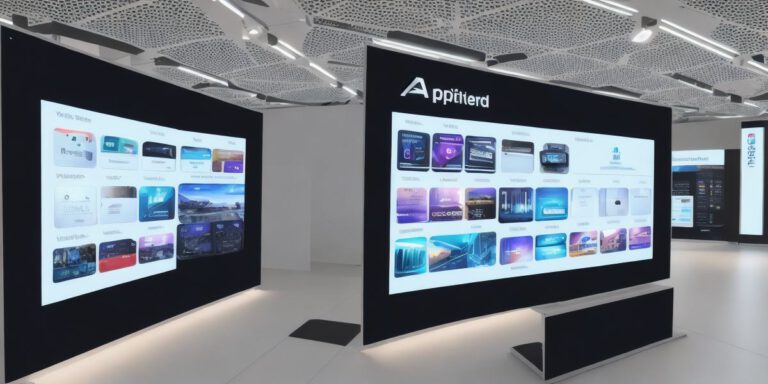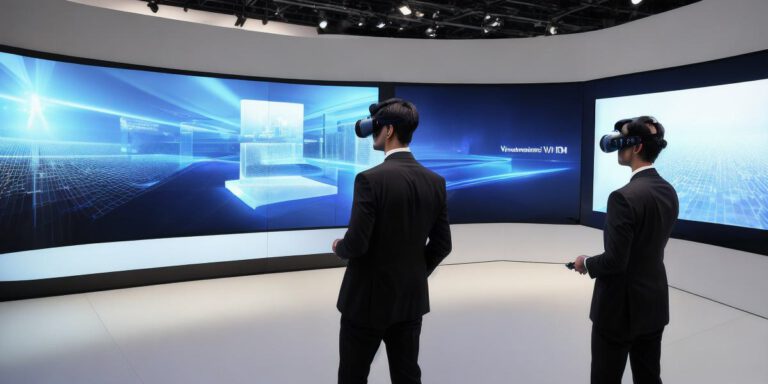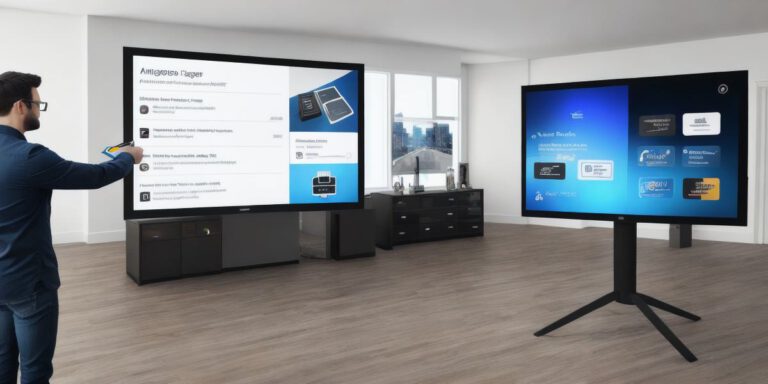Immersive Virtual Showrooms: Enhancing Product Demonstrations with VR Technology

Virtual reality (VR) technology has revolutionized the way businesses showcase their products and services. With the rise of immersive virtual showrooms, customers can experience a product in 3D before making a purchase decision, leading to increased customer satisfaction and sales. In this article, we will explore the benefits of using VR technology for product demonstrations and how immersive virtual showrooms can help businesses enhance their customer experiences.
One major benefit of immersive virtual showrooms is that they allow customers to experience a product in its true context before making a purchase decision. For example, a potential car buyer can virtually drive the car around town, test out different features, and get a feel for how it handles on different roads. This level of detail and realism makes the customer experience much more engaging and informative, leading to increased trust in the product and ultimately, sales.
Immersive virtual showrooms are also highly customizable, allowing businesses to tailor the experience to their specific needs and preferences. For example, a retail store can create a virtual showroom that replicates their physical store layout, complete with products and displays. This allows customers to browse and purchase products in a familiar setting, making the transition from online to offline seamless.
In addition to enhancing the customer experience, immersive virtual showrooms can also help businesses save money on product demonstrations and marketing efforts. By providing a virtual platform for product demonstrations, businesses can eliminate the need for physical samples or demonstrations, reducing costs and increasing efficiency. Virtual showrooms can also be used to showcase products globally without incurring the expenses of traveling to different locations.
One of the key drivers behind the success of immersive virtual showrooms is their ability to create a sense of presence and engagement that traditional media cannot provide. According to research by the Virtual Reality Society, 71% of people reported feeling more engaged with virtual experiences compared to traditional media such as TV or magazines. This level of engagement translates into increased customer satisfaction and loyalty, leading to repeat business and positive word-of-mouth recommendations.
Expert opinions also support the use of immersive virtual showrooms for product demonstrations. "Virtual reality technology has the potential to transform the way we experience products," says Mark Zuckerberg, CEO of Facebook. "Immersive virtual showrooms can help businesses create more engaging and memorable experiences for customers, leading to increased sales and brand loyalty."
In conclusion, immersive virtual showrooms are an effective tool for enhancing product demonstrations and creating a highly engaging customer experience. By leveraging the power of VR technology, businesses can save money on product demonstrations and marketing efforts while providing customers with a unique and memorable experience that sets them apart from their competitors. As the popularity of VR technology continues to grow, immersive virtual showrooms are poised to become an essential tool for businesses looking to stay ahead of the curve and create exceptional customer experiences.








